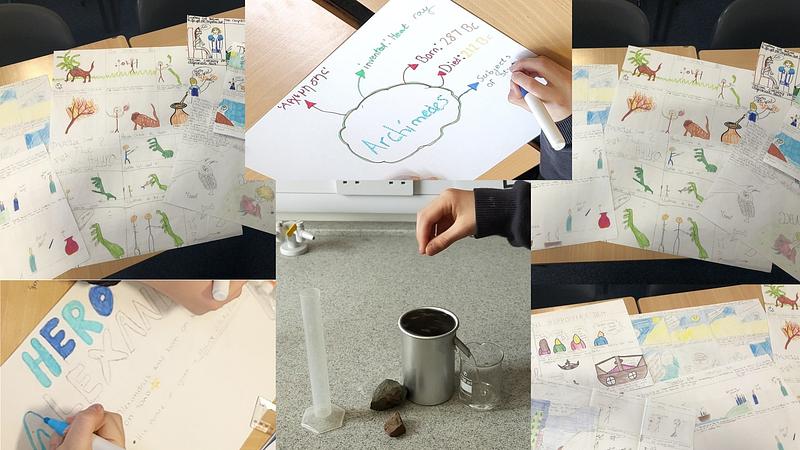Interdisciplinary book projects at Cathkin High School
Read our community success story for using interdisciplinary book projects on your Reading Schools journey

We have loved watching Cathkin High School work through their Core accreditation and see them strive towards a Silver award. Throughout their reading for pleasure journey, their use of interdisciplinary book projects has been outstanding. Linsey Nicol (english teacher) share tips on how they developed a project that was truly interdisciplinary, using Ancient Greece as their cross-curricular connection.
Our Core level Interdisciplinary learning (IDL) project came about from a bit of luck in all honesty! Our Reading Schools team included four staff members last year: myself, Kerr Thomson (geography), Linda Patterson (maths) and James Gray (science). We had a small team of staff because the project was also a School Improvement Group, one of many across the school. By sheer chance we shared the same S1 pupils so we decided to use this class as our IDL guinea pigs!
Choosing a focus
The class was a mixed group and a combination of keen and more reluctant readers. When I was looking for a text to use as our class novel, I thought that a full novel might put some of the pupils off reading rather than engaging them and, since Scots had gone down very well with them previously, Matthew Fitt's Hercules Bampots and Heroes might be the class text for them. The unusual combination of Greek mythology, Scots language and the accessible book made it a standout winner for me.
Finding the interdisciplinary connection
With this in mind I discussed with Kerr, Linda and James if they had any ideas that could tie in with Greek mythology. James suggested looking at the Archimedes' Eureka experiment in science and Linda planned for the class to research famous Greek mathematicians. Kerr led some research into what Ancient Greece would have been like at the time of Archimedes.
What the pupils thought
In English we read the book, discussed the stories and characters, then chose one of the 'trauchles' (Hercules' labours) to storyboard. At the same time, the class worked with James in science, looking at how Archimedes discovered water displacement, density and volume. In maths they researched Archimedes, Pythagoras and other famous Greek mathematicians then made posters with their findings. In geography, the class learned about the country of Greece and what life would have been like for the Ancient Greeks.
The pupils enjoyed having a theme running through their lessons and found it fun that, as subject teachers, we were in communication and could refer to what they were learning across the school. The book was a hit with the class and they enjoyed reading it - with some pupils even volunteering to try reading aloud. The book really captured their imaginations.
Learnings and next steps
I think the key to the success of the project was being able to find a natural connection between the subjects that didn't cause unnecessary additional workload for the staff involved. The added bonus of the shared class meant communication was really easy between us and, because we met regularly as a Reading Schools team, our aims were clear and we were all very much on the same page.
After starting small we are now ready to roll out a new, larger scale project with confidence for our Silver Award this year!
Related resources
There are other resources that you may also find of interest:
- Interdisciplinary book projects webinar short and learning resources
- Using The Arrival for a cross-curricular book project(this will open in a new window)
- Using Tidy by Emily Gravett for a cross-curricular book project(this will open in a new window)
- Using The Hunger Games for a cross-curricular book project(this will open in a new window)
- Using Journey for a cross-curricular book project(this will open in a new window)

